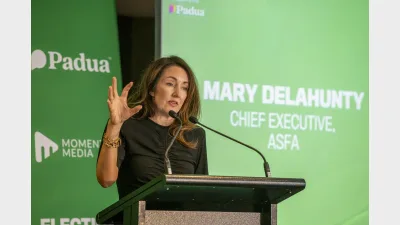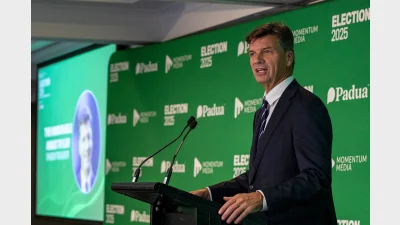Industry funds welcome annual meeting move


The industry superannuation funds appear to have embraced a Government move to impose annual member meetings on superannuation funds.
The Australian Institute of Superannuation Trustees (AIST) chief executive, Evan Scheerlinck said providing a means for members to engage with the people managing their hard-earned superannuation represented a good way of identifying issues of most interest to members.
Scheerlinck said the Government’s package of superannuation reforms required careful analysis to ensure there were no unintended consequences for members.
Industry Super Australia (ISA) also welcomed the move towards annual member meetings, with ISA chief executive, David Whiteley welcoming what it said amounted to adoption of a recommendation from the governance review conducted by Bernie Fraser.
However, in doing so, Whiteley called for greater scrutiny of what he described as the “persistent underperformance” of bank-owned funds.
“The regulator must ascertain whether bank-owned super funds are prioritising shareholder interests over fund member interests, and the implications of this on retirement savings,” he said.
The Financial Services Council (FSC) also welcomed the Government’s legislative initiative claiming the annual meeting requirement for superannuation funds would result in better outcomes for consumers.
FSC chief executive, Sally Loane said: “Consumers should rightly have the power to ask questions of the directors and senior managers of their funds about how they are run, how their fees are spent and where their retirement savings are invested”.
“The FSC strongly supports all proposals which give consumers more power and greater transparency over one of their most important assets – their superannuation savings,” she said.
“A more transparent superannuation system will enable the prudential regulator, APRA [Australian Prudential Regulation Authority], to take action over underperformance of subscale funds. The FSC urges the government to ensure these reforms are accompanied by legislation to enable consumers to be able to choose the fund they want, and which would also allow competition into the default market.”
Recommended for you
Aware Super has made a $1.6 billion investment in a 99-hectare industrial precinct in Melbourne’s North which, the fund clarified, also houses the nation’s first privately funded open-access intermodal freight terminal.
ASFA has affirmed its commitment to safeguarding Australia’s retirement savings as cyber activity becomes an increasing challenge for the financial services sector.
The shadow treasurer is not happy with the performance of some within the super sector, telling an event in Sydney on Thursday that some funds are obsessed with funds under management, above all else.
As the Australian financial landscape faces increasing scrutiny from regulators, superannuation fund leaders are doubling down on their support for private markets, arguing these investments are not just necessary but critical for long-term financial stability.












